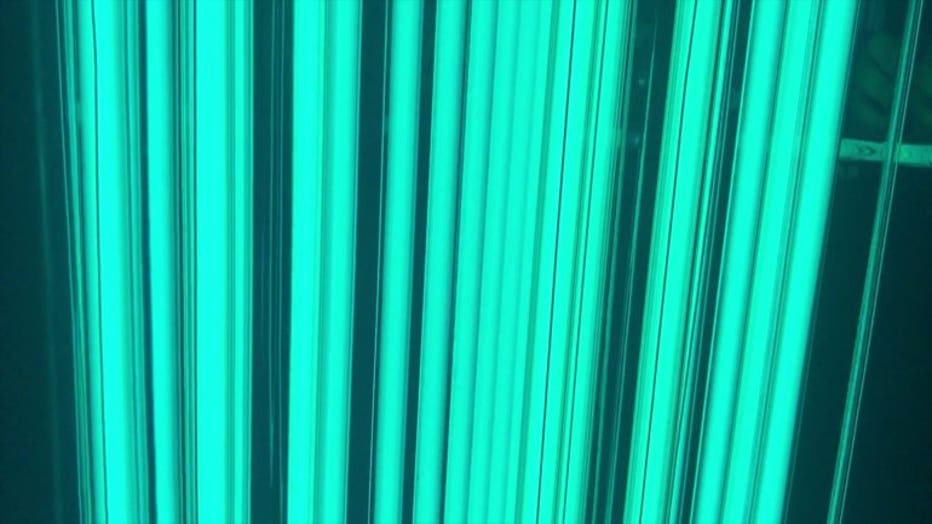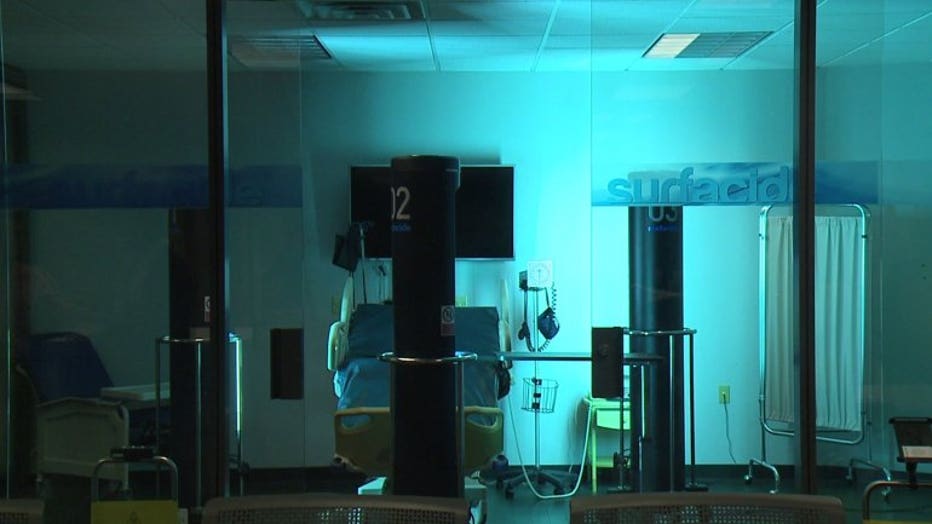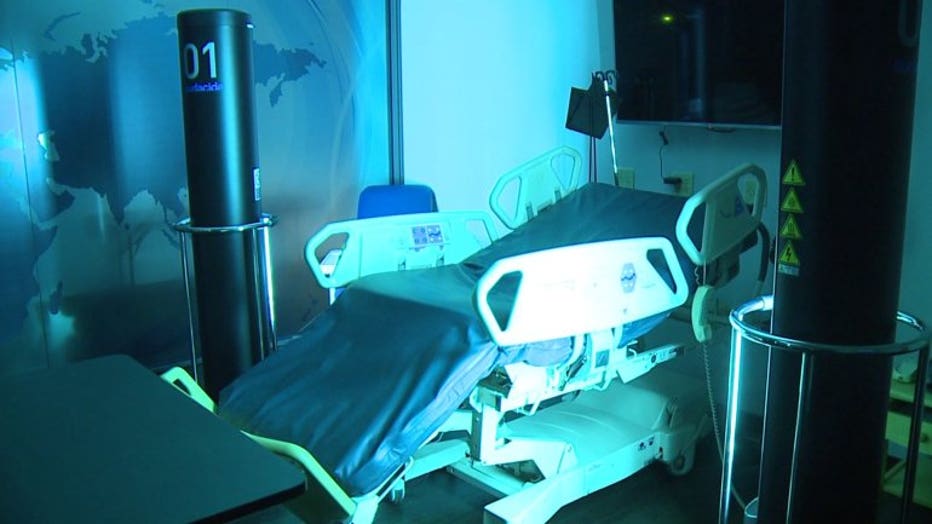'We're killing that cell:' Waukesha company uses UV-C light to eliminate coronavirus
Waukesha company uses UV-C light to eliminate coronavirus
Waukesha company uses UV-C light to eliminate coronavirus
WAUKESHA -- Officials with Surfacide in Waukesha said their product can help big institutions, like hospitals, kill the coronavirus before it infects humans.
Tensions over how to contain the coronavirus escalated Tuesday, March 3 in the United States as the death toll climbed to nine, and lawmakers expressed doubts about the government’s ability to ramp up testing fast enough to deal with the crisis.
All of the deaths have occurred in Washington state, and most were residents of a nursing home in suburban Seattle. The number of infections in the U.S. overall climbed past 100, scattered across at least 15 states, with 27 cases in Washington alone.
Viruses and bacteria can live on hard surfaces and can usually be killed with common household cleaning products, but officials at Surfacide said their product is just another tool in the toolbox.
"The devices are engaged for the cycle, so I'm going to select my full room mode," said Gunner Lyslo. "You see the lasers on the objects, on the floors. All of those surfaces that are above shoulder height that can still come in contact with a health care worker's hands are being treated."


Gunner Lyslo
Those surfaces were bathed in light from rotating towers standing in a mocked-up hospital room at Surfacide headquarters in Waukesha during the demonstration Tuesday, March 3. It mimics powerful UV-C light, stronger than the normal UV light that we get from the sun. In its true form, UV-C has the ability to disrupt the DNA of bacteria and viruses.
"These organisms have never come in contact or encountered UV-C energy," said Lyslo. "We're actually lysing that cell. We're actually killing that cell."
Lyslo said this adds another layer of disinfection protocol for hospitals and health care environments.
"This is additive, to make that space or that room far safer for the next patient coming in," said Lyslo.

Cleaning hospitals is complex, but studies have shown that UV-C disinfection paired with other disinfection methods reduces chances of health care-associated infections, like from superbugs or coronaviruses.
"If we can break the transmission of these infections within the hospital or within these rooms, then it's far less likely to spread in a way that it's spreading within hospitals," said Lyslo.

Lyslo said their UV-C emitters cost about $100,000 out the door and are used in a number of hospitals in the state, and across the country and world. It's just one part of the process to try to keep bad bugs down and out.

